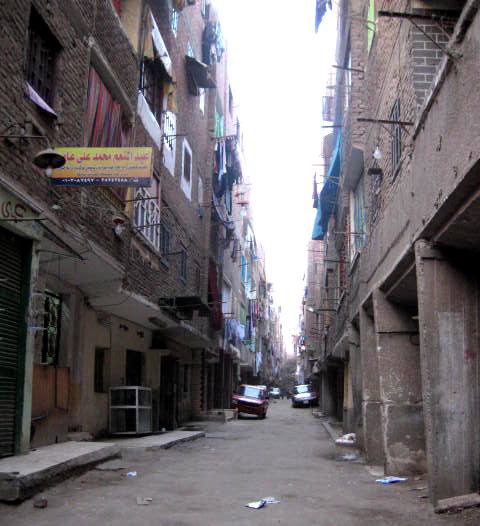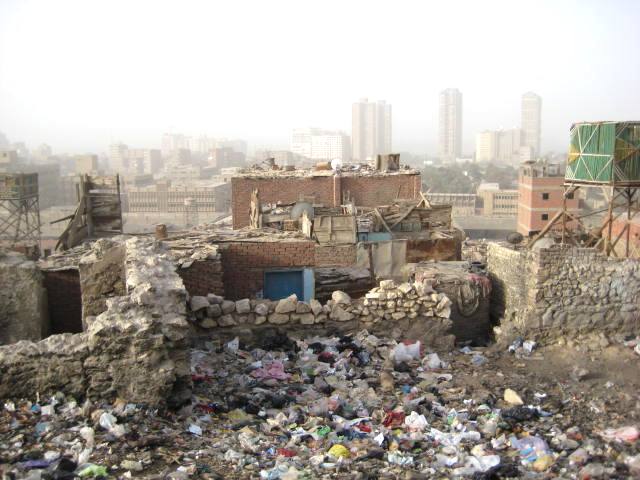


In February 2009, Patrick Wakely, Babar Mumtaz, and Sheilah Meikle conducted a series of workshops on the decentralisation of the planning, management and upgrading of informal settlements for some 40 professionals and technicians from four of the five Governorates of Greater Cairo. They also ran a parallel course of seminars for the staff of the GTZ (German Technical Cooperation) Participatory Development Programme in Urban Areas (PDP) in Egypt. Both events raised interesting issues concerning the implementation of national decentralisation policies and strategies for participation.
 |
 |
Some 50% of Greater Cairo’s 17 million inhabitants live in informal areas at densities of up to 60,000 people per km2. The catch-all label of informal areas has recently been subdivided by government into ‘Unsafe Areas’ in which people’s lives and health are at risk and ‘Informal Areas’ which are in some way illegal but do not present an immediate threat to life and limb. A recent limited survey indicates that some 5-10% of informal areas fall into the first of these categories, requiring priority public sector intervention, in some cases entailing demolition and/or relocation. The majority of Informal Settlements, however, need to be upgraded so that they can be reclassified as ‘formal’. The predominant approaches to such upgrading entail the regularisation of title to land, the improvement of access to urban services and amenities (schools, clinics, open spaces, recreation facilities, solid waste management) and infrastructure (water supply, sewerage, road surfaces, street lighting). In addition there is demand for support to income generation, social and community development and wide-ranging ‘integration’ into the society and economy of the city.
Under the new policies most of these functions have been decentralised to the Governorate and District levels and even further down to the level of communities. The earlier phases of the GTZ PDP (1998-2007) were principally concerned with ‘enabling’ communities and neighbourhood improvement. Whilst this continues, the programme’s emphasis has now shifted to assisting with the process of managing decentralisation and developing capacity at the Governorate level and the development of strategies for bridging the gap between the upper echelons of the administration and informal area communities.
Over five days the workshop for Governorate officials addressed different approaches to the management of decentralisation by drawing upon lessons learnt from international experience and case studies from comparable cities, principally in Asia and Latin America. It also took the participants through a series of linked analytical exercises in order to identify the most efficient mechanisms for decentralising decision-making and action and the most effective forms of participation. The workshop then analysed the political, legislative and procedural constraints to implementing such strategies and mechanisms.
The three major issues that emerged from these sessions was: 1) the need for a better understanding of both the principles and practice of decentralisation and the devolution of decision-making; 2) the need for new approaches to coordinating the plans and actions of different line ministries, departments and agencies engaged in the management and development of informal areas; and 3) the need for changes in perceptions towards the occupants of informal settlements and the development of new forms of communication with them.
The seminars with GTZ PDP staff took a somewhat different form, alternately reviewing the social, regulatory and physical/environmental components of support to developing the capacity of governorate staff, again drawing heavily on lessons from international experience and case studies from other cities.
The discussion of approaches and strategies in other cities was appreciated and the participants of both the workshop and seminars engaged fully with examining similarities and analysing differences to the conditions of Greater Cairo. However, there was an air of disappointment that no single proven model existed that if transferred to Greater Cairo would effortlessly solve all their problems. Oh for ready-made quick-fix solutions. If only…!